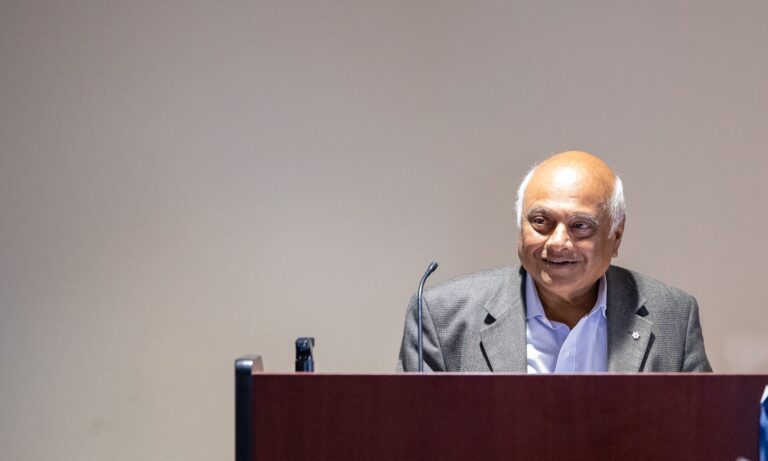PHRI’s Michael McGillion and PJ Devereaux, with Hamilton Health Sciences’ Mark Levine, have been awarded research infrastructure funding by the Canadian government for their “Improving Perioperative and Cancer Outcomes through Excellence and Application of Virtual Technologies” (PROTECT) laboratory.
Their award ($800,000) is the largest out of of 332 projects at 50 universities from coast to coast, including 11 projects at McMaster University. A total of more than $77 million has been awarded through the Canada Foundation for Innovation (CFI)’s John R. Evans Leaders Fund.
The new PROTECT laboratory will be housed at the Juravinski Cancer Centre in Hamilton, Canada. The JCC is led by Mark Levine, a medical oncologist at Hamilton Health Sciences (HHS), and the Director of the Escarpment Cancer Research Institute (ECRI). Mark was invested in the Order of Canada in 2017, one of the country’s highest honours.
Mike McGillion and PJ Devereaux have been working together for years in virtual care research studies focused on perioperative care, such as the recent PVC-RAM, SMArTVIEW and others.

Devereaux; McGillion
PHRI Senior Scientist PJ Devereaux leads the perioperative and surgery research group at PHRI; he is a Professor and University Scholar in McMaster’s Department of Health Research Methods, Evidence and Impact (HEI) and Department of Medicine. He is supported by a Tier 1 Canadian Research Chair in Perioperative Medicine, and holds the the Yusuf Chair in Cardiology at McMaster.
PHRI Scientist Michael McGillion is Associate Professor, and Assistant Dean, Research, at the School of Nursing, McMaster University. He is the Heart and Stroke Foundation/Michael G. DeGroote Endowed Chair in Cardiovascular Nursing Research, and the International Visiting Professor of Digital Health, at Coventry University in the UK. He was the first University Scholar (2019) at McMaster to be from the School of Nursing.
The PROTECT laboratory is a purpose-built facility, designed as a clinical operations command centre for virtual care with RAM research. The lab is organized into functional suites of complementary virtual care and RAM infrastructure which, together, form an integrated architecture for providing:
- Seamless, real-time patient data monitoring and capture for multiple studies simultaneously;
- Visual and actionable system information at macro (i.e., study population) and micro (i.e., individual patient) levels;
- Real-time patient-clinician communication and team coordination; and
- Privacy of personal health information.
The PROTECT lab is part of the Virtual Care and Remote Automated Monitoring Technology Research (VICTOR) joint research program between PHRI, CREATE – an advanced IT group within HHS, and the Escarpment Cancer Research Institute, also in Hamilton.
Learn more about PHRI’s work in virtual care and health technologies over the years.




